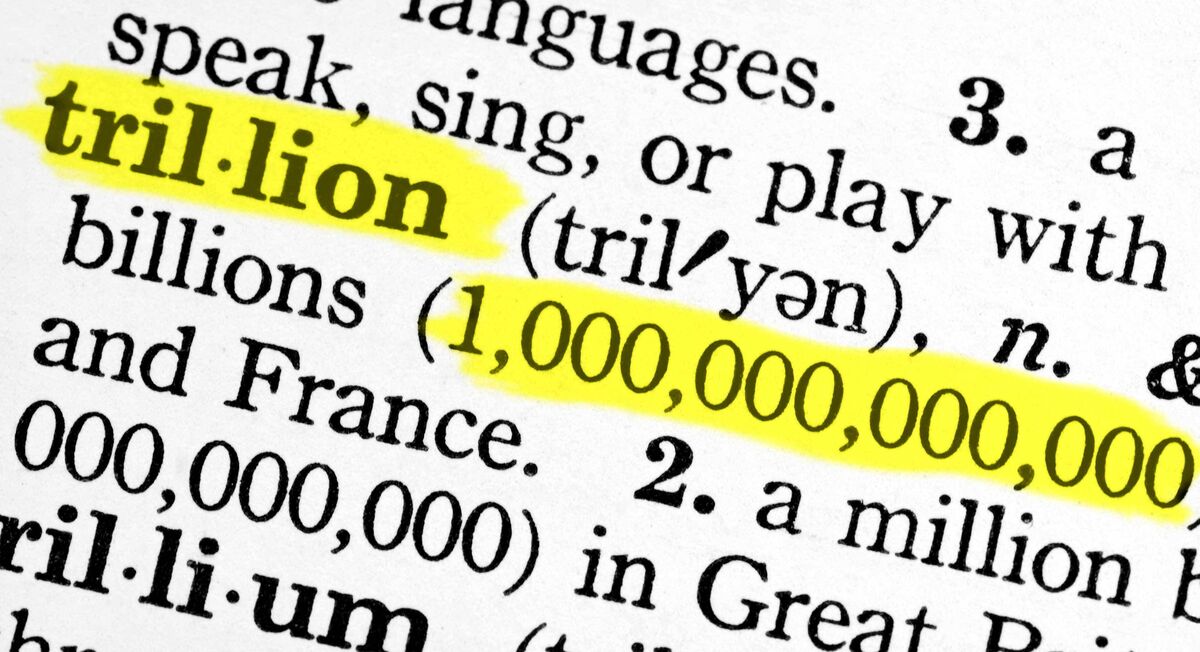
What's the biggest number you can think of? Chances are, it has a lot of zeros in it. But what are the names of very large numbers, and how much bigger are they than ordinary numbers? Keep reading to get to know the largest numbers in mathematics and the best ways to express them.
Names of Large Numbers
One million sounds like a big number. However, in the world of big numbers, one million is the smallest number! For every three zeros you add after 1,000,000, the name of the number changes. This table shows the names of large numbers from one million up to one decillion. Notice that using scientific notation is a very effective way to write these large numbers without listing dozens of zeros.
Number Name | Numeral | Scientific Notation |
one million | 1,000,000 | 106 |
one billion | 1,000,000,000 | 109 |
one trillion | 1,000,000,000,000 | 1012 |
one quadrillion | 1,000,000,000,000,000 | 1015 |
one quintillion | 1,000,000,000,000,000,000 | 1018 |
one sextillion | 1,000,000,000,000,000,000,000 | 1021 |
one septillion | 1,000,000,000,000,000,000,000,000 | 1024 |
one octillion | 1,000,000,000,000,000,000,000,000,000 | 1027 |
one nonillion | 1,000,000,000,000,000,000,000,000,000,000 | 1030 |
one decillion | 1,000,000,000,000,000,000,000,000,000,000,000 | 1033 |
Once you get to a decillion, you're dealing with a number that has 33 zeros! It's unlikely that you'd encounter any amount of items that are as numerous as a decillion in your daily life. However, scientists and mathematicians rely on having names for large numbers for their calculations.
Names of Very Large Numbers
You may be wondering if numbers can even get bigger than a decillion. Don't worry — they can. If you continue adding three zeros to the end of very large numbers, you'll get to one centillion or 10303.
Number Name | Numeral | Scientific Notation |
one undecillion | 1,000,000,000,000,000,000,000,000,000,000, | 1036 |
one duodecillion | 1,000,000,000,000,000,000,000,000,000,000, | 1039 |
one tredecillion | 1,000,000,000,000,000,000,000,000,000,000, | 1042 |
one quattuordecillion | 1,000,000,000,000,000,000,000,000,000,000, | 1045 |
one quindecillion | 1,000,000,000,000,000,000,000,000,000,000, | 1048 |
one sexdecillion | 1,000,000,000,000,000,000,000,000,000,000, | 1051 |
one septendecillion | 1,000,000,000,000,000,000,000,000,000,000, | 1054 |
one octodecillion | 1,000,000,000,000,000,000,000,000,000,000, | 1057 |
one novemdecillion | 1,000,000,000,000,000,000,000,000,000,000, | 1060 |
one vigintillion | 1,000,000,000,000,000,000,000,000,000,000, | 1063 |
one trigintillion | 1,000,000,000,000,000,000,000,000,000,000, | 1093 |
one quadragintillion | 1,000,000,000,000,000,000,000,000,000,000, | 10123 |
one quinquagintillion | 1,000,000,000,000,000,000,000,000,000,000, | 10153 |
one sexagintillion | 1,000,000,000,000,000,000,000,000,000,000, | 10183 |
one centillion | 1,000,000,000,000,000,000,000,000,000,000, | 10303 |
One centillion is the largest number that ends in -illion. It has 303 zeros and is the last large number in the English dictionary. You can see the enormous journey between the "small" number of one million and the unimaginably large number of one centillion!
Googol and Googolplex
While a centillion is the largest -illion number, it's not quite the largest number that has a name. A googol has 100 zeros, and a googolplex has googol zeros — basically, ten to the power of googol. These numbers are too big for even mathematicians to fathom, as neither googol nor googolplex are words in formal mathematical use.
Fictitious Numbers
Are you wondering if "zillion" is missing from the above list? What about "jillion" or "bagillion"? They're not missing because they're not real numbers. They're placeholder words used to mean very, very large numbers. Another fictitious number is affectionately known as "Sagan's number," which denotes the number of observable stars in the universe.
Interesting Facts About Big Numbers
Sometimes it can be difficult to imagine these huge numbers in the context of our real lives. Check out these interesting facts about the largest numbers in mathematics to help you make more sense of them.
- There are over 43 quintillion ways to arrange a Rubik's cube. That is a tiny fraction of the number of possible ways to stack a deck of cards, which is over eight vigintillion.
- There are approximately 133 quindecillion atoms on Earth (which is still not as many as the possible deck of card combinations).
- If you counted one number a second, it would take over 11 days to count to one million, but a lifetime (79 years) to count to a billion. After that, it would take over 31,000 years to count to a trillion.
- If you wrote out a googolplex on paper, the stack of paper would weigh more than the entire Earth.
- The approximate number of grains of sand on Earth's land is 7.5 quintillion.
- Astronomers estimate that there are roughly one septillion stars in over 10 trillion galaxies in the universe.
- If you examined 10 drops of water, you'd find over one septillion H2O molecules (yes, the same number as stars in the universe).
Count on Math Facts
The beauty of math rests in how predictable it can be. Even in the case of large numbers, seemingly unfathomable numbers can be remarkably predictable. For more math writing practice, learn the rules for writing numbers. Then, explore abbreviations for thousand, million, and billion. Or, if you're interested in learning more about math and how it works, find out about all the different types of numbers.